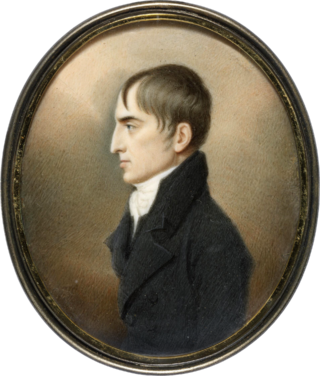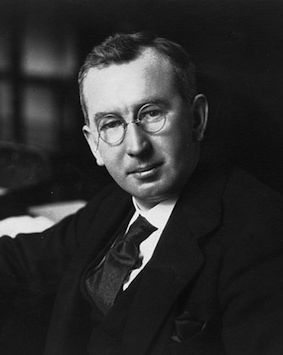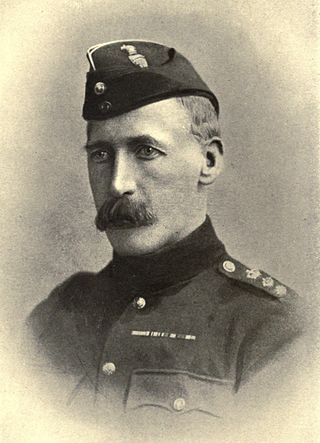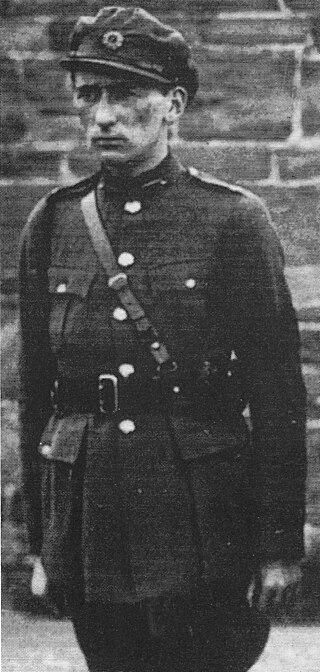Related Research Articles

Robert Emmet was an Irish Republican, orator and rebel leader. Following the suppression of the United Irish uprising in 1798, he sought to organise a renewed attempt to overthrow the British Crown and Protestant Ascendancy in Ireland, and to establish a nationally representative government. Emmet entertained, but ultimately abandoned, hopes of immediate French assistance and of coordination with radical militants in Great Britain. In Ireland, many of the surviving veterans of '98 hesitated to lend their support, and his rising in Dublin in 1803 proved abortive.

Gabriel Mary Byrne was an Irish presenter and host of radio and television. His most notable role was as the first host of The Late Late Show over a 37-year period spanning 1962 until 1999. The Late Late Show is the world's longest-running live chat show. He was affectionately known as "Uncle Gay", "Gaybo" or "Uncle Gaybo". His time working in Britain with Granada Television saw him become the first person to introduce the Beatles on-screen, and Byrne was later the first to introduce Boyzone on-screen in 1993. According to Byrne, Paul McCartney asked him to be the Beatles' agent during a sound check for his show but he declined the offer.

Cathal Brugha was an Irish republican politician who served as Minister for Defence from 1919 to 1922, Ceann Comhairle of Dáil Éireann in January 1919, the first president of Dáil Éireann from January 1919 to April 1919 and Chief of Staff of the Irish Republican Army from 1917 to 1918. He served as a Teachta Dála (TD) from 1918 to 1922.

Michael Thomas Christopher Mallin was an Irish republican, Socialist and devout Catholic who took an active role in the Easter Rising of 1916. He was a silk weaver, the co-founder with Francis Sheehy-Skeffington of the Socialist Party of Ireland, and was second-in-command of the Irish Citizen Army under James Connolly in the Easter Rising, in which he commanded the garrison at St. Stephen's Green in Dublin.

Thomas Stanislaus MacDonagh was an Irish political activist, poet, playwright, educationalist and revolutionary leader. He was one of the seven leaders of the Easter Rising of 1916, a signatory of the Proclamation of the Irish Republic and Commandant of the 2nd Battalion, Dublin Brigade of the Irish Volunteers, which fought in Jacob's biscuit factory. He was executed for his part in the Rising at the age of thirty-eight.

Fionán Lynch was an Irish revolutionary, barrister, politician and judge of the Circuit Court from 1944 to 1959, Leas-Cheann Comhairle of Dáil Éireann from 1938 to 1939, Minister for Lands and Fisheries from 1928 to 1932, Minister for Fisheries from 1922 to 1928, Minister without portfolio from August 1922 to December 1922 and Minister for Education from April 1922 to August 1922. He served as a Teachta Dála (TD) from 1918 to 1944.
Commander-in-Chief, Ireland, was title of the commander of the British forces in Ireland before 1922. Until the Act of Union in 1800, the position involved command of the distinct Irish Army of the Kingdom of Ireland.

Charlie Kerins was a physical force Irish Republican, and Chief of Staff of the Irish Republican Army (IRA). Kerins was one of six IRA men who were executed by the Irish State between September 1940 and December 1944. After spending two years on the run he was captured by the police in 1944. Following his subsequent trial and conviction for the 1942 murder of Garda Detective Sergeant Denis O'Brien, Kerins was hanged at Mountjoy Prison in Dublin.
The Cairo Gang was a group of British military intelligence agents who were sent to Dublin during the Irish War of Independence to identify prominent members of the Irish Republican Army (IRA) with, according to information gathered by the IRA Intelligence Department (IRAID), the intention of disrupting the IRA by assassination. Originally commanded by British Army General Gerald Boyd, they were known officially as the Dublin District Special Branch (DDSB) and also as D Branch.

Joseph McKelvey was an Irish Republican Army officer who was executed during the Irish Civil War without trial or court martial. He participated in the Anti-Treaty IRA's repudiation of the authority of the Dáil Éireann, the civil government of the Irish Republic declared in 1919 in March 1922, and was elected to the IRA Army Council as Deputy Chief of Staff. In April 1922, he helped command the occupation of the Four Courts in defiance of the new Irish Free State. This action helped to spark the civil war, between pro- and anti-treaty factions. McKelvey was among the most hardline of the republican side and, briefly in June 1922, became IRA Chief of Staff.
Bryan Michael MacMahon was an Irish playwright, novelist and short story writer from Listowel, County Kerry. A schoolteacher by training, his works include The Lion Tamer, Patsy-o and his Wonderful Pets and The Red Petticoat. He wrote an autobiography, The Master, and his works include an English translation of Peig, the Irish-language autobiography of Peig Sayers.
Archie Doyle was one of three anti-Treaty members of the Irish Republican Army (1922–1969) (IRA) who on 10 July 1927 assassinated the Irish Justice Minister Kevin O'Higgins. He had had a long subsequent career in the organisation's ranks.

Paddy Daly (1888–1957) sometimes referred to as Paddy O'Daly, served in the Irish Republican Army during the Irish War of Independence and subsequently held the rank of major-general in the Irish National Army from 1922 to 1924.

Henry Luttrell was an Irish army officer known for his service in the Jacobite cause. A career soldier, Luttrell served James II in England until his overthrow in 1688. In Ireland he continued to fight for James, reaching the rank of General in the Irish Army.

Sir Bryan Thomas Mahon, was an Irish general of the British Army, a senator of the short-lived Senate of Southern Ireland, and a member for eight years of the Irish Free State Senate until his death.
John Allen was a United Irishman, committed to an independent Irish republic. After a failed attempt with Robert Emmet in 1803 to renew the United Irish insurrection crushed five years before, he went into French exile and served with distinction in the army of Napoleon.

The Irish rebellion of 1803 was an attempt by Irish republicans to seize the seat of the British government in Ireland, Dublin Castle, and trigger a nationwide insurrection. Renewing the struggle of 1798, they were organised under a reconstituted United Irish directorate. Hopes of French aid, of a diversionary rising by radical militants in England, and of Presbyterians in the north-east rallying once more to the cause of a republic were disappointed. The rising in Dublin misfired, and after a series of street skirmishes, the rebels dispersed. Their principal leader, Robert Emmet, was executed; others went into exile.

Maurice George Moore, was an Irish author, soldier and politician.
Brigadier-General Sir Joseph Aloysius Byrne, was the Royal Irish Constabulary's Inspector-General from 1916 until 1920. He later served in Sierra Leone, Seychelles and Kenya.

The Army Mutiny was an Irish Army crisis in March 1924 provoked by a proposed reduction in army numbers in the immediate post-Civil War period. A second grievance concerned the handling of the Northern Boundary problem. As the prelude to a coup d'état, the decisions made by influential politicians and soldiers at the time have continuing significance for the Government of Ireland.
References
- 1 2 "Vinny Byrne, the most feared assassin sent by Michael Collins". IrishCentral.com. 11 August 2021. Retrieved 29 October 2021.
- ↑ "Anniversary of the Death of Vinny Byrne". Rte.ie. Retrieved 29 October 2021.
- ↑ "Dictionary of Irish Biography | Dictionary of Irish Biography". Dib.ie. Retrieved 29 October 2021.